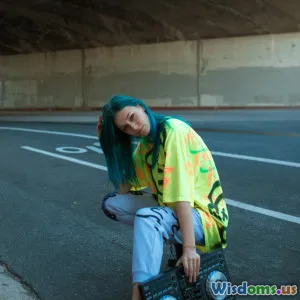
Embracing Cultural Authenticity: The Future of Beauty Marketing
7 min read Explore how embracing cultural authenticity is reshaping beauty marketing for a more inclusive and impactful future. (0 Reviews)
Embracing Cultural Authenticity: The Future of Beauty Marketing
In today's hyper-connected world, beauty is no longer defined by a singular, Western-centric standard. Consumers are actively seeking brands that resonate with their cultural identities and express genuine representation. As diversity takes center stage globally, cultural authenticity is rapidly emerging as a transformative movement in beauty marketing. This shift is reshaping the industry’s approach to messaging, product development, and customer engagement.
Why Cultural Authenticity Matters in Beauty
For decades, the beauty industry largely promoted a narrow, homogenized image of beauty — fair skin, specific facial features, and Eurocentric styling. However, this approach excluded vast populations and perpetuated unrealistic ideals. Today’s consumers demand more than superficial inclusivity; they seek meaningful representation that honors cultural heritage.
According to a 2022 report by McKinsey, brands prioritizing authenticity and cultural relevance grow up to 20% faster than competitors. Authenticity fosters trust, deep emotional connections, and loyalty. It's no longer sufficient for a brand to simply feature diverse models — they must also embed cultural narratives respectfully and accurately into their marketing.
Sections
1. Representation Beyond Tokenism
One major hurdle in beauty marketing has historically been tokenism — superficially including diverse faces without meaningful storytelling or cultural respect. The future lies in moving beyond this. Brands like Fenty Beauty by Rihanna have set a new standard; Fenty launched with 40 foundation shades purposefully catering to an extensive range of skin tones, demonstrating commitment rather than ticking boxes.
Furthermore, global campaigns that share cultural stories educate and empower consumers. Nivea’s "#MatchMySkin" campaign in 2023 celebrated women’s cultural roots in South Asia by showcasing traditional skincare rituals alongside modern approaches — unifying authenticity with contemporary beauty trends.
2. Collaborations with Cultural Insiders
Successful authenticity often depends on collaboration with people deeply rooted in the culture. Partnering with local artists, creators, and influencers ensures sensitivity and preserves cultural nuances. For example, L’Oréal’s partnership with African-American makeup artists and entrepreneurs helped create products tailored to Afro-textured hair and skin, often overlooked before.
These collaborations bring invaluable insights into cultural idiosyncrasies, consumer preferences, and taboo topics around beauty. They enhance product development and story voice, fostering genuine community alignment.
3. Storytelling as a Bridge to Culture
Marketing narratives must transcend aesthetics and evoke heritage, struggles, and triumphs tied to culture. Brands who tell stories that resonate meaningfully with cultural groups forge deeper bonds.
Take Pat McGrath Labs, which not only showcases avant-garde beauty looks but also shares founder Pat McGrath’s own beginnings from a working-class, multicultural London neighborhood. These authentic narratives inspire and build brand credibility.
4. Technology and Personalization Empower Authenticity
Digital innovation allows brands to customize experiences and products based on cultural preferences and individual characteristics. Virtual try-ons tailored for diverse complexions, AI skin diagnostics aware of ethnic-specific concerns, and localized e-commerce platforms enable brands to engage authentically at scale.
In 2024, Shiseido launched an AI-powered tool, "Sensei Skin Match," guiding customers through culturally relevant skin health insights and matching products accordingly — an approach that acknowledges diverse skin chemistry and rituals.
5. Addressing Cultural Appropriation with Respect
One critical challenge as brands embrace cultural elements is steering clear of appropriation — adopting cultural symbols or practices disrespectfully for commercial gain. Brands must conduct cultural research, seek community permissions, and focus on honoring traditions rather than exploiting them.
Successful cases include Gucci’s careful integration of indigenous patterns in partnership with Navajo artisans, ensuring profits benefited the communities directly involved.
6. The Business Impact: Authenticity Drives Growth
Empirical data supports that culturally authentic beauty marketing pays dividends:
- Brand Loyalty: Studies show 70% of consumers are more likely to buy from brands representing their ethnicity authentically.
- Market Expansion: By tapping into underrepresented communities, brands can access rapidly growing consumer segments globally.
- Social Impact: Authentic campaigns improve societal attitudes around diversity, democratising beauty standards.
For example, in 2023, Estée Lauder’s "True Stories" campaign increased sales by 15% in emerging markets by featuring real consumers’ cultural makeup routines.
Conclusion: A Call to Embrace Authenticity
The future of beauty marketing hinges on embracing cultural authenticity—honoring diversity not as an afterthought but as a core value. Brands must evolve beyond superficial representation towards genuine storytelling, respectful collaborations, and innovative personalization.
This cultural embrace offers more than commercial success; it fosters a richer, more inclusive beauty culture that celebrates all identities. As consumers increasingly expect transparency, respect, and relevance, beauty brands stepping boldly into authentic cultural narratives will lead the industry into a vibrant and connected future.
Ready to champion cultural authenticity? Consider how your brand can uplift neglected voices, collaborate with cultural creators, and craft meaningful stories that resonate globally and personally. The time to embrace authenticity is now—and it’s more than a trend; it’s a transformative movement reshaping the essence of beauty marketing.
Rate the Post
User Reviews
Popular Posts





















